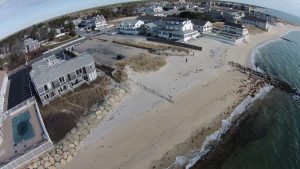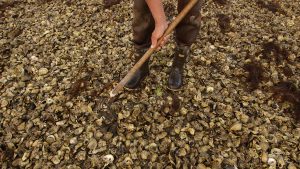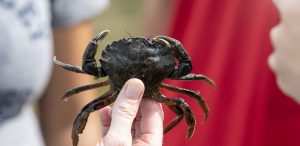Search results for: VIPREG how to get betwinner promo code Switzerland
Tips on Tuna Handling
Tips on Tuna Handling Helpful to educators and students. White, A.W. 2 pp., 1988 WHOI-G-88-001 The value of the bluefin tuna fishery is driven largely by the high demand for top-quality, fresh tuna for the Japanese market. Fresh bluefin tuna is most valuable when the fat content is high (generally between the end of July…
Read MoreGetting a Leg Up on Floodplain Management
Providing guidance to regulators and builders on floodplain management is part of Woods Hole Sea Grant’s mission to enhance the practical use and conservation of coastal and marine resources. When it comes to building in a floodplain – areas at risk of flooding after significant rainfall – there are myriad regulations set by local, state,…
Read MorePerformance Requirements in Ocean Mineral Development
Performance Requirements in Ocean Mineral Development Hoagland, P. Marine Policy Reports, Vol. 9, No. 3, pp. 5-10, 1987 WHOI-R-87-001
Read MoreWHOI-R-91-001 Fenwick, J. Science Willing &
WHOI-R-91-001 Fenwick, J. Science Willing &
Read MoreTeacher Workshop April 2002
Teacher Workshop April 2002 “Determining the Resistance of Marine Animals to Environmental Chemicals” Dr. Mark Hahn, WHOI, Biology Department Dr. Hahn’s major research interests include receptor-mediated mechanisms of toxicity, and means of adaptation and acquired resistance to exposure to persistent organic pollutants. This presentation centered on looking at toxins in the marine environment, particularly dioxins,…
Read MoreWHOI-X-83-002 Burke, William J. An Impr
WHOI-X-83-002 Burke, William J. An Impr
Read MoreEnjoying Oysters Safely in Massachusetts
Each year, millions of fresh raw oysters are consumed in Massachusetts, most of them in the warm summer months. During that time, aquaculturists in the Commonwealth take extra precautions to safeguard their harvests from the heat, include icing oysters at the time of harvest – a step that can double or triple the weight of…
Read MoreBeach and Dune Profiles: An Educational Tool for Observing and Comparing Dynamic Coastal Environments
Beach and Dune Profiles: An Educational Tool for Observing and Comparing Dynamic Coastal Environments Helpful to educators and students. WHOI Sea Grant Marine Extension Bulletin, 6 pp., 2001 WHOI-G-01-001
Read More“Marine Invaders” Educator Workshop Scheduled for December
Marine Invaders: Green crabs and other species are the featured subjects in the next WHSG Topics in Oceanography (TIO) workshop for informal and formal educators grades 6-12. The workshop is scheduled for Friday, December 3 from 9 a.m. – 4 p.m. at the Woods Hole Oceanographic Institution. The Woods Hole Sea Grant Program, WHOI Information Office,…
Read MoreCoastal Seiches
Coastal Seiches Giese, G.S. and D.C. Chapman Oceanus, Vol. 36, No. 1, pp. 38-46, 1993 WHOI-R-93-002
Read More


